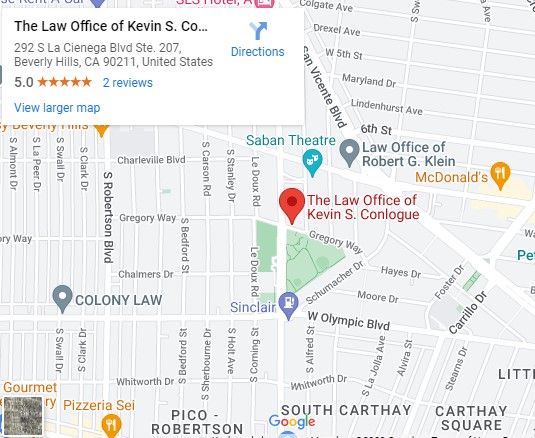Time is Ticking: Take Legal Action Promptly
Ever wondered why timing in legal battles feels like a race against the clock? In California, statutes set strict timelines for initiating lawsuits post-accident. This principle, crucial for those seeking justice, revolves around “How long after an accident can you sue in California.”
Simply put, it defines the window within which you must file a lawsuit after suffering harm or loss due to someone else’s negligence. This time frame encourages prompt action, ensuring evidence remains fresh and claims are resolved efficiently. Delays can forfeit your right to seek compensation, making timing essential in the legal process.
Quick Summary
Below is an overview of the key points of this blog article.
- Different laws set deadlines for filing personal injury claims in California. You typically have two years to sue for injuries caused intentionally or accidentally, like assault, battery, or negligence-related incidents.
- Claims against government entities need to be filed within six months of the incident.
- While possible, filing after the deadline could result in case dismissal or settlement complications.
- If injured before turning 18, the statute of limitations is paused until they reach adulthood, with exceptions for specific cases.
- The delayed discovery rule allows filing beyond time limits if injuries were not immediately apparent or discoverable.
- The personal injury claim process involves determining eligibility, selecting the right court, sending a demand letter, preparing a legal case, adhering to time limits, examining evidence, negotiating a settlement, and going to court if needed.
How Long After an Accident Can You Sue in California?
In California, the clock for filing a personal injury lawsuit usually starts on the accident date. You have two years if a private party caused the accident. Some circumstances can change when the clock starts. It’s best to talk to a personal injury attorney about your case promptly.
Can I File a Legal Action Against a Government Agency After an Accident?
When you’re injured by a government employee or on a faulty road in California, you must first file an administrative claim within 180 days or six months of your injury. The agency then has 45 days to respond.
If they don’t, you can file your lawsuit within two years of your injury. If your claim is denied, you can still file a lawsuit within six months of the denial.
Can I File a Legal Action After the Statute of Limitations Has Passed?
You might try to sue for personal injury even after the time limit has passed, but it’s not guaranteed you’ll win. The other side will likely argue that the time limit is up, which could lead to your case being thrown out.
The time limit also affects injury settlements. In California, you can’t ask for damages once the deadline has passed. Plus, if you wait too long, the person you’re suing might not feel pressured to settle with you.
Is California’s Personal Injury Statute of Limitations Extended for Minors?
In California, if you’re under 18, you’re considered a minor, which means you can’t make legal decisions on your own. So, if a minor gets hurt in California, the two-year time limit for filing a lawsuit is usually put on hold until they turn 18. There are some special rules about time limits for minors who are injured, especially for medical malpractice cases.
- You have three years from when something wrong happened to file a lawsuit.
- If the child is under six when they’re hurt, they have until their eighth birthday to file.
If someone gets hurt before or during birth, they have six years from the day they’re born to take legal action.
What is California’s Delayed Discovery Rule?
The delayed discovery rule is a form of equitable tolling. In California, this rule delays the beginning of the time limit until you can reasonably have found out about your injuries. It comes into play when:
- You weren’t aware of facts that would make a normal person think they were hurt by someone’s wrongdoing.
- Even if you had looked into it carefully and honestly, you wouldn’t have found out that a harmful product or situation played a part in your injury.
What Steps Should I Take for the Personal Injury Claim Process in California?
Every personal injury case is unique, but they often share similarities. While the details may vary, the basic legal principles and California laws remain consistent. Here are the steps in the California injury claim process:
Ensure You’re Allowed to Sue
You can file a personal injury claim in California without a lawyer, but many people hire one right away. A good lawyer can guide you, starting with checking if you have the right to sue. Contrary to what you might see on TV, you can’t sue for any reason.
There are specific rules about when you can file a personal injury claim. In California, you need to show these basic facts to sue:
- You were hurt because of what the defendant did or didn’t do.
- You’re recognized by the law as an individual or business.
- You’re an adult and able to handle the lawsuit mentally and physically.
Determine the Correct Court
Choose the appropriate court venue for your personal injury claim, often based on where the injury occurred or where the involved parties reside. It’s best to have guidance from a lawyer to avoid case dismissal.
Send a Letter Asking for Compensation
Before taking legal action, a demand letter is typically sent. A demand letter in personal injury cases requests a specific sum from the defendant, potentially resolving the matter without filing a claim if they comply.
Prepare Your Legal Case
If the other party won’t discuss and give you the money you’re asking for, you might have to prepare a formal complaint to submit to the court. Prepare a formal complaint with evidence of injuries and accidents. Filing it initiates either a trial or settlement talks, prompting a response from the defendant.
Keep an Eye on Time Limits
A very important part of filing a personal injury claim is doing it before the time runs out. In California, you usually have two years from when you got hurt to file. If you file after this time, you might not be able to get compensation.
Examine the Evidence
Once the defendant or their lawyer replies to your complaint, the next step starts. It’s called the pre-trial discovery phase. During this time, your lawyer and the defendant’s lawyer exchange and examine evidence to prepare their legal arguments.
Discuss a Settlement
Once the defendant’s lawyer has looked at all the evidence backing your claim, they might be more open to fair settlement talks. It doesn’t always happen this way, but often settlements are made during this stage of the process.
Go to Court If Needed
If you and the other party can’t agree on a settlement, the next step is probably going to court. During the trial, both sides will show evidence and make legal arguments over several days or weeks.
Aggressive Pursuit of Your Legal Rights and Just Compensation
Navigating the legal timelines in California can seem daunting. Yet, it’s crucial for securing the compensation you rightfully deserve. At Conlogue Law LLP, we excel in demystifying these deadlines, ensuring your case doesn’t just meet the necessary legal standards but surpasses them.
Our team’s experience means we’re adept at handling the complexities of your situation, ensuring no detail is overlooked. With a stellar track record, Conlogue Law LLP stands ready to guide you through “how long after an accident can you sue in California.” Our approach is not just about meeting deadlines. It’s about crafting a winning strategy tailored to your unique circumstances.
If you’re seeking a legal partner who will aggressively pursue your rights while keeping you informed every step of the way, look no further. We can also assist you with Amusement Park Accidents, Dangerous Highways, and Swimming Pool Accidents. Reach out to Conlogue Law LLP today for a free consultation, and let’s set the wheels of justice in motion for you.








